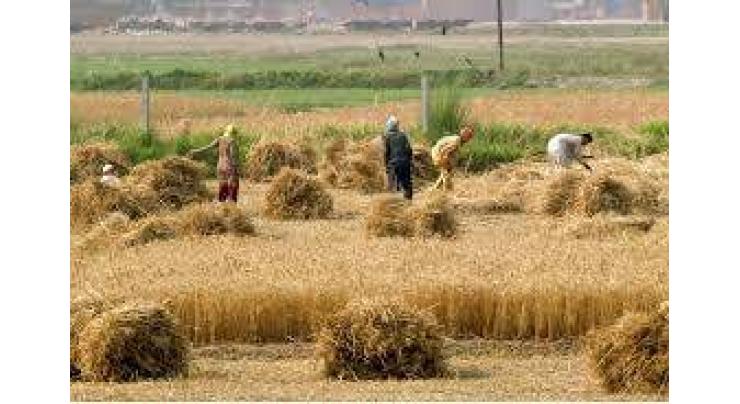
Govt Urged Probe Seed, Pesticides Sector Cartelisation To Save Agriculture
Sumaira FH Published May 23, 2020 | 04:12 PM

Federation of Pakistan Chambers of Commerce and Industry (FPCCI) Standing Committee on Agriculture on Saturday called upon the government to get rid of cartelisation in the seed and pesticides sector for development of agriculture sector.
ISLAMABAD, (UrduPoint / Pakistan Point News - 23rd May, 2020 ) :Federation of Pakistan Chambers of Commerce and Industry (FPCCI) Standing Committee on Agriculture on Saturday called upon the government to get rid of cartelisation in the seed and pesticides sector for development of agriculture sector.
"The substandard seed and pesticides may hit the agriculture sector to the next level and cotton crop is one of the novel example in this regard," the committee said in a statement issued here.
It said it was the second consecutive year that cotton growers seemed worried, as substandard seeds had again flooded local markets especially in Sindh province.
These seeds grow nothing or the germination rate is as low as 30-40 in the fields, former chairman of the committee Ahmad Jawad said adding that cotton cultivation had started in the southern parts of Sindh and South Punjab and farmers seemed troubled because of the non-availability of high productivity seeds according to the respective soil conditions.
Despite the fact that the country has best research institutes like Pakistan Agriculture Research Council (PARC) where we can produce local seeds for any crops through international cross breeding according to our weather conditions, there was no role of regulator who could check the quality of seed and pesticides on every shipment before landing in the market.
Similarly, the quality of pesticides is keep pathetic day by day "if you put one spray on the crop to kill the insect or virus, it would be most likely through that spray another virus may be hit on the same crop.
He also called upon that Government to make cotton growers stand on their own feet and bring back those to cotton cultivation who have opted for other profitable alternatives.
Related Topics
Recent Stories

PTI to stage nationwide protests against alleged electoral frauds

Senate continues discussion on Presidential address to Joint Sitting of Parliame ..

Masood Khan calls for Pak-US cooperation for regional peace

Interior Minister starts Margalla Trail Patrol for security

Currency Rate In Pakistan - Dollar, Euro, Pound, Riyal Rates On 26 April 2024

Today Gold Rate in Pakistan 26 April 2024

ICC Womens T20 World Cup Qualifier, Match 2: Ireland Women open with Comfortable ..

Robinson, bowlers help New Zealand go 2-1 up against Pakistan

Shahzeb Chachar to hold khuli kachehri on April 26

Heatwave amid Israel's aggression in Gaza brings new misery, disease risk

Tourism must change, mayor says as Venice launches entry fee

Court adjourns Judicial Complex attack case till May 17
More Stories From Business
-
Kitchen items’ prices ease as weekly inflation falls by 1.1%
28 minutes ago -
Shipping Activity at Port Qasim
2 hours ago -
Machinery equipment assembling grew by 70.98% in 08 months
3 hours ago -
Gold rates up by Rs.2,500 per tola to Rs245,000
3 hours ago -
Miner Anglo American rejects BHP's $38.8 billion takeover bid
3 hours ago -
Exchange rates for currency notes
6 hours ago
-
Foreign exchange rates
6 hours ago -

Currency Rate In Pakistan - Dollar, Euro, Pound, Riyal Rates On 26 April 2024
7 hours ago -

Today Gold Rate in Pakistan 26 April 2024
7 hours ago -
Chinese minister felicitates Ahsan Iqbal on reappointment as Planning minister
16 hours ago -

Pak-US officials engage to enhance trade, investment ties
17 hours ago -

Stocks fall as tech shares sink, US economy slows
17 hours ago









